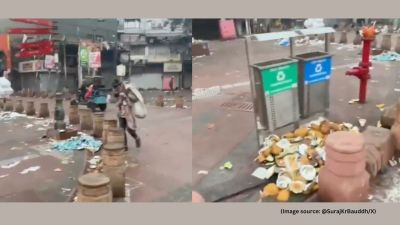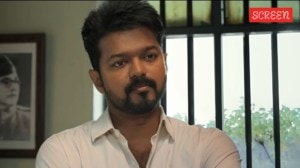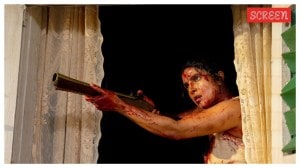Midnight treasure hunt
MARCH 13: Snakes, why did they have to be snakes?quot; I always wanted to say that. Ever since a craggy Harrison Ford rolled over and sai...

MARCH 13: Snakes, why did they have to be snakes?quot; I always wanted to say that. Ever since a craggy Harrison Ford rolled over and said the same a generation ago in Raiders of the Lost Ark. But by the time I knew that I had had a similar experience, it was too late to say anything.
The snakes, most of them water snakes, had probably brushed past as we trudged through a cold, slushy, knee-deep stream. Anything slimy had a life of its own, and fortunately not too ill-disposed to my invading feet as I kept going upstream. It was a quarter past midnight. Armed with a lantern that spilled light on the swirling waters, searching for crabs. Abhi lunged into the water searching for a little blighter sc-ampering across the river bed, generating mud for camouflage. Abhi, our host, guide and friend, we discovered, was quite good. But Deepya was better.
Unlike Abhi, he had spent nearly all his life in this village dominated by the Marathas. A sprinkling of Muslim families, tucked away amidst the sugarcane fields, had integrated themselves into the social fabric of the village. So much so that they were active participants in the wrestling ma-tches that had been held earlier in the evening.
Thumping their bare arms and torsos to intimidate opponents in time-honoured tradition, they would move in. Fingers stretched out against a blue sky, a clearing that smelled of biodegradable dried dung? fertilisers, searching for an opening. The bets ranged from free batashahs for the four-year-olds to Rs 1,001 for the older lot. This was the yatra involving all who had left the village in different generations, searching for a life outside the acres of land their fathers had tilled. The yatra saw them come back for a week. A week that saw mutton pieces floating in oil and the small fair offering plastic dolls or the home-made bioscope that had Aamir immortalised with Sonali Bendre in a Bollywood flash.
quot;We used to have a factory to make jaggery,quot; said Kaka, Abhi8217;s father, as we sat in his field after the wrestling match munching on a sugar cane, ripping the skin off with our teeth and squishing the juice down our throats. quot;Then the sugar factories came and we had to close down,quot; he said as he pointed out a mango tree planted by his grandfather in the failing light.
A few hours later, we were upstream looking for crabs. Underneath rocks, stones, bushes underwater, they scampered as we grabbed. All duly tucked into a formerly-cement-white bag that greedily absorbed the yellow light of the lantern. Santya, holding the bag, had christened us quot;commandosquot; and kept up a constant battering of dialogues from Prahaar. Although younger, he was Patekar8217;s Major Chauhan, directing quot;his jokersquot; into battle. quot;Ab tu goli kha,quot; he said, laced with a Gabbar Singh drawl, and promptly dropped a logenze into our eager palms. So-mething that had been a regular with his constant banter through the night. We loved both.
The next day, when we tro-oped out into the hot afternoon sun, loaded with cooking implements and ingredients to cook the previous night8217;s booty, the same stream would be our bathing rooms. No toilets in the village, simply offering open fields where people went for their morning ablutions. Swinging across the stream with a vine that had matured for a hundred years, we let out collective whoops. Appetites cried out as the crabs, duly prepared, cooked in a huge vessel. The conversation, a leftover from our twilight adventures, reminisced of the corn cobs we had roasted over cow dung cakes.A papaya was plucked along with other ingredients the land had to offer.
A bountiful land, where we slept after the meal, wondering about lives, past and present, as a truck roared off on a distant highway. We had come home, distant from the urban consciousness that was our everyday, at times mundane, reality.
- 01
- 02
- 03
- 04
- 05































